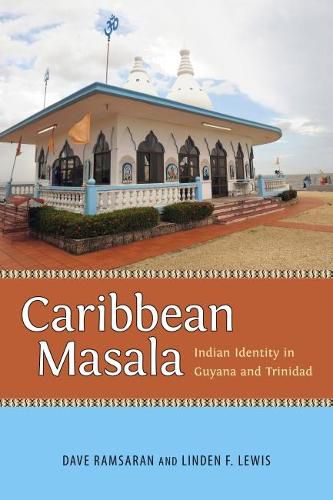Readings Newsletter
Become a Readings Member to make your shopping experience even easier.
Sign in or sign up for free!
You’re not far away from qualifying for FREE standard shipping within Australia
You’ve qualified for FREE standard shipping within Australia
The cart is loading…






This title is printed to order. This book may have been self-published. If so, we cannot guarantee the quality of the content. In the main most books will have gone through the editing process however some may not. We therefore suggest that you be aware of this before ordering this book. If in doubt check either the author or publisher’s details as we are unable to accept any returns unless they are faulty. Please contact us if you have any questions.
In 1833, the abolition of slavery in the British Empire led to the import of exploited South Asian indentured workers in the Caribbean under extreme oppression. Dave Ramsaran and Linden F. Lewis concentrate on the Indian descendants’ processes of mixing, assimilating, and adapting while trying desperately to hold on to that which marks a group of people as distinct. In some ways, the lived experience of the Indian community in Guyana and Trinidad represents a cultural contradiction of belonging and non-belonging. In other parts of the Caribbean, people of Indian descent seem so absorbed by the more dominant African culture and through intermarriage that Indo-Caribbean heritage seems less central. In this collaboration based on focus groups, in-depth interviews, and observation, sociologists Ramsaran and Lewis lay out a context within which to develop a broader view of Indians in Guyana and Trinidad, a numerical majority in both countries. They address issues of race and ethnicity but move beyond these familiar aspects to track such factors as ritual, gender, family, and daily life. Ramsaran and Lewis gauge not only an unrelenting process of assimilative creolization on these descendants of India, but also the resilience of this culture in the face of modernization and globalization.
$9.00 standard shipping within Australia
FREE standard shipping within Australia for orders over $100.00
Express & International shipping calculated at checkout
This title is printed to order. This book may have been self-published. If so, we cannot guarantee the quality of the content. In the main most books will have gone through the editing process however some may not. We therefore suggest that you be aware of this before ordering this book. If in doubt check either the author or publisher’s details as we are unable to accept any returns unless they are faulty. Please contact us if you have any questions.
In 1833, the abolition of slavery in the British Empire led to the import of exploited South Asian indentured workers in the Caribbean under extreme oppression. Dave Ramsaran and Linden F. Lewis concentrate on the Indian descendants’ processes of mixing, assimilating, and adapting while trying desperately to hold on to that which marks a group of people as distinct. In some ways, the lived experience of the Indian community in Guyana and Trinidad represents a cultural contradiction of belonging and non-belonging. In other parts of the Caribbean, people of Indian descent seem so absorbed by the more dominant African culture and through intermarriage that Indo-Caribbean heritage seems less central. In this collaboration based on focus groups, in-depth interviews, and observation, sociologists Ramsaran and Lewis lay out a context within which to develop a broader view of Indians in Guyana and Trinidad, a numerical majority in both countries. They address issues of race and ethnicity but move beyond these familiar aspects to track such factors as ritual, gender, family, and daily life. Ramsaran and Lewis gauge not only an unrelenting process of assimilative creolization on these descendants of India, but also the resilience of this culture in the face of modernization and globalization.